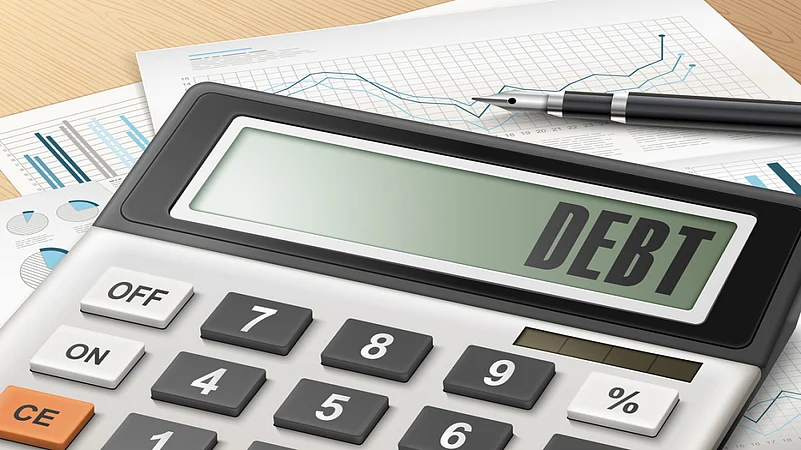The most awaited event of the year the Union Budget, just got over, leaving people with the perennial questions--What is there in it for me? Does it impact my life? Does it create any impact on my portfolio? Though the equity market has taken it well, the average debt investor didn’t find any good news; in fact, she went away concerned.
The last two years have been extraordinarily difficult for the country. The economy needed all the support and stimuli it could get to generate a better-than-yesterday growth rate to come back on track. Globally, all central banks were borrowing at near zero rates and giving it to the public at near zero rates. So did the Reserve Bank of India. It also borrowed lower and gave out money at cheaper rates, especially during the Covid waves.
This has been going on for a long time. Remember the amount of money that entered the system due to demonetisation? When supply goes up, prices fall. When a large quantity of money is available in the bank accounts, the fixed deposit (FD) rates crash as the banks have more money than needed, so why pay high interest. Overall, this is a long-term trend. A 1-year fixed deposit is now at 5 per cent. Post-inflation and taxes, most of the times, it will be net negative returns. But not many consider that when they have an assurance of returns.
Saver Turns Investor
Given the low returns, the saver has turned investor, with increased risk, tenure and returns in her portfolio. Today, the proliferation and awareness of equity as an asset class, especially through systematic investment plans (SIPs), is increasing every month. However, debt and equity market do not work in the same way. Debt has a different structure of rising and falling yields.
Simply put, if interest rates are falling, long-term funds perform well, like they did in 2019-20. In the past two years, interest rates have been low across the world so that people and companies could borrow, consume and sell at low rates. The cycle is reversing now. The loose money in the world has nearly achieved its objective of generating growth. That growth is now moving towards inflation. To address inflation, central banks are reducing money flow and thereby making money expensive, which will lead to a rise in interest rates. If governments make money expensive, so it will be for others down the chain.
In the Budget, the Indian government expressed that it wants to borrow Rs 14.9 lakh crore in FY 2022-23. As it borrows more from the market, it reduces money for others. So, others who need money need to pay more for it. For example, a bank that needed money for three months, was paying 3.6 per cent per annum interest in December 2021. Today, it has to pay 4.1 per cent for the same tenure. If you were to lend to such a bank, you should be earning 50 basis points more. Sounds good, right? It may sound good today, but if you have given the money in December 2021, you would be feeling a little bad now.
Time For Low Duration Funds
So how do you decide where to invest? You can invest in funds that are capturing this move up, which is what liquid, low duration and ultra-short mutual funds do. They invest in short duration papers that can capture this upside. When interest rates are increasing, these funds move faster in such high-yield low-tenure papers.
In equity, markets movements and returns are mostly in the same direction. In debt, it’s the reverse, hence difficult to comprehend.
You make decent returns when interest rates go down. Imagine investing into a bank FD at 7 per cent. After six months, imagine the banks are giving 5 per cent on the same FD. If you could sell that fixed deposit, you will get a premium. The reverse would have happened if current FDs rates were at 8 per cent or above. If that doesn’t bother you, you still get 7 per cent return on your FD.
In debt funds, invest when yields are up as you are getting a better rate to invest in. Invest in a fund closest to your holding period. Stay invested to get the returns as close as it is to your holding period. In between, if interest rates go up, buy more if you can. If interest rates go down, you will get a premium. If nothing else, if you stay invested till the end of the paper and get the stated return.
In equity investments, investors don’t get perturbed by their past investment rate or value. Today’s rate is an entry point for them. The same can be done for debt investments too, if investors can ignore past rates and invest in the increasing rate scenario and wait for the interest rate cycle to play out.
Debt can also give good returns and can be planned better. All it takes is a little hatke thinking.
The author is Head – Product and Strategy Communication, Mirae Asset Investment Managers (India)
(Disclaimer: Views expressed are the author’s own, and Outlook Money does not necessarily subscribe to them. Outlook Money shall not be responsible for any damage caused to any person/organisation directly or indirectly.)
























.png?w=200&auto=format%2Ccompress&fit=max)






